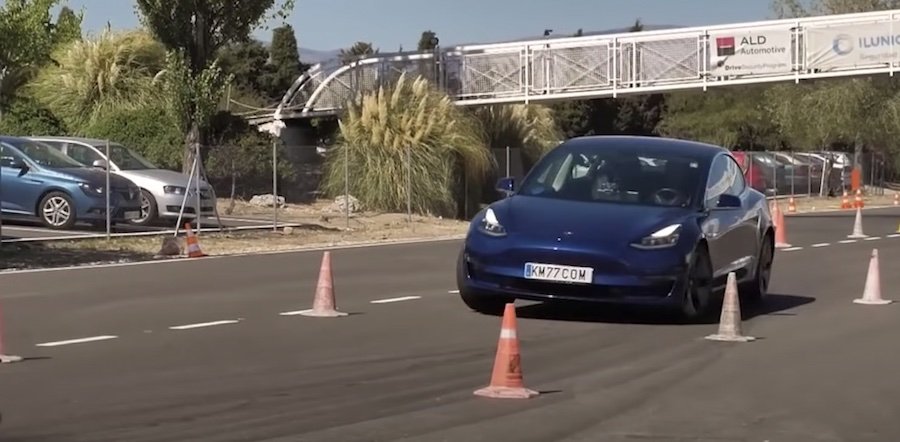2023 Hyundai Ioniq 6 Doesn't Impress In Moose Test With Nexen Tires

The Hyundai Ioniq 6 already impressed us with its efficiency during our test drive of the electric model (see the related links below) and now it is time to see how good the South Korean vehicle is in the moose test. The Ioniq 6 is the latest car to be evaluated by the km77.com team and the video at the top of this page shows what it can do around the cones. We were expecting more, though.
But let’s start with some numbers first. The tested example has a single electric motor placed on the rear axle with a peak output of 228 horsepower. A 77.4-kilowatt-hour battery pack sits within the floor of the vehicle, giving it a range of up to 381 miles (614 kilometers) measured by Europe’s WLTP cycle. However, the real-life range between charges is around 270 miles. The 0-62 miles per hour (0-100 kilometers per hour) sprint takes around 7.4 seconds in this configuration. This particular car rides on Nexen NFera Sport EV tires in 225/55 R18 size.
The reviewer in this video isn’t impressed by the Ioniq 6’s performance around the cones. The highest entry speed at which the car doesn’t hit any cone in the moose test is 44.7 mph (72 kph) and this is a relatively low velocity, especially for an electric vehicle that generally has a lower center of gravity. A big part of this result is due to the tires or at least this is what the test driver says. He makes more than 10 consecutive attempts at different speeds, which keeps them at quite high temperatures, negatively affecting their performance. As a side note, the Tesla Model 3 - a direct competitor for the Ioniq 6 - registered a significantly better result in the moose test.
Apparently, the suspension – with a McPherson strut front/multi-link rear layout – also plays an important role. According to the reviewer, it has a very soft setup while the accelerator has very aggressive reactions, making the Ioniq 6 prone to oversteering. Also, it is very important to notice that the performance in the moose test of the model largely depends on the level of recuperation that has been selected by the driver. The reviewer notes that the highest levels of recuperation make the car a little nervous as it feels like there’s some brake power applied to the rear wheels.
Related News
